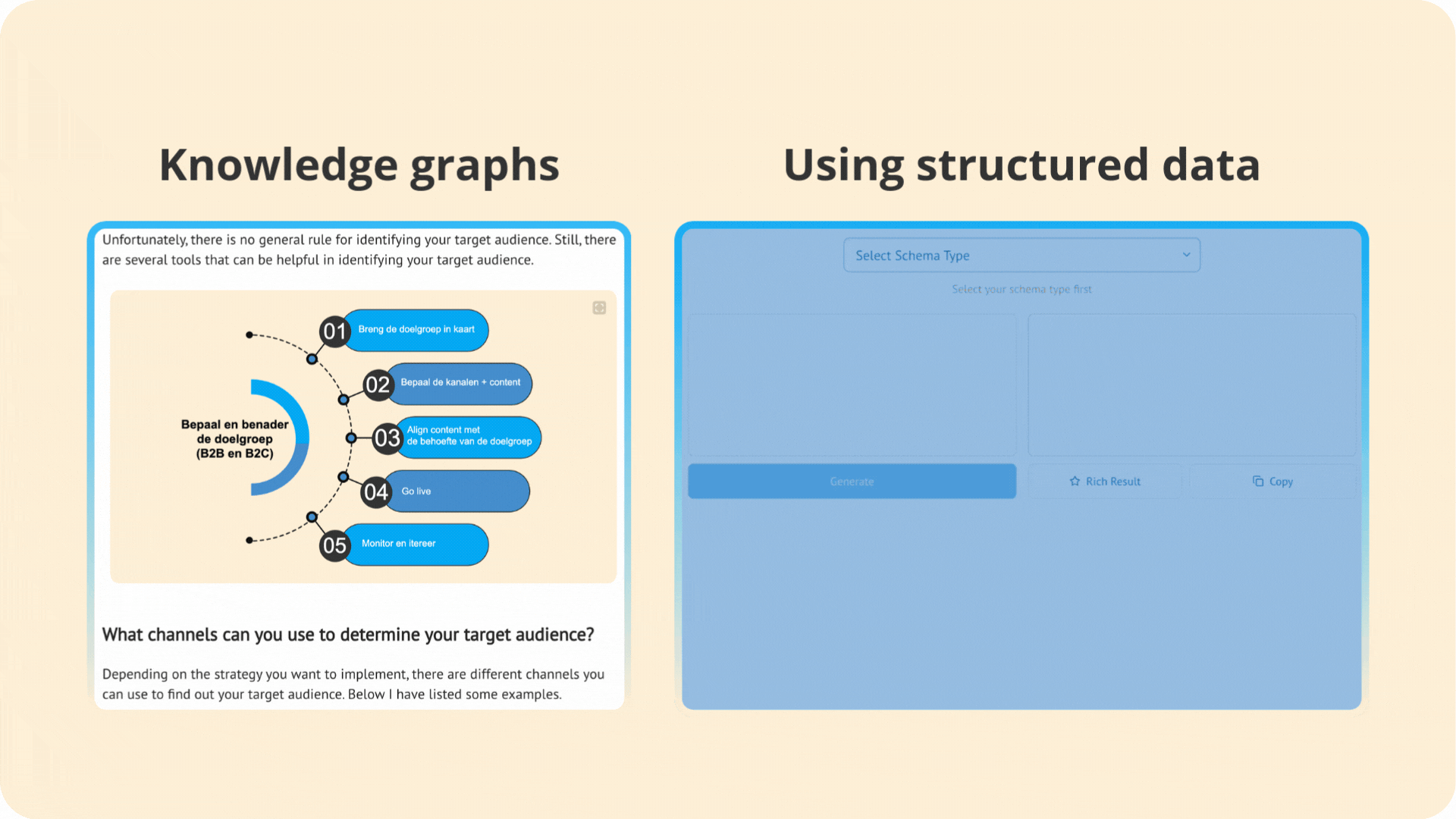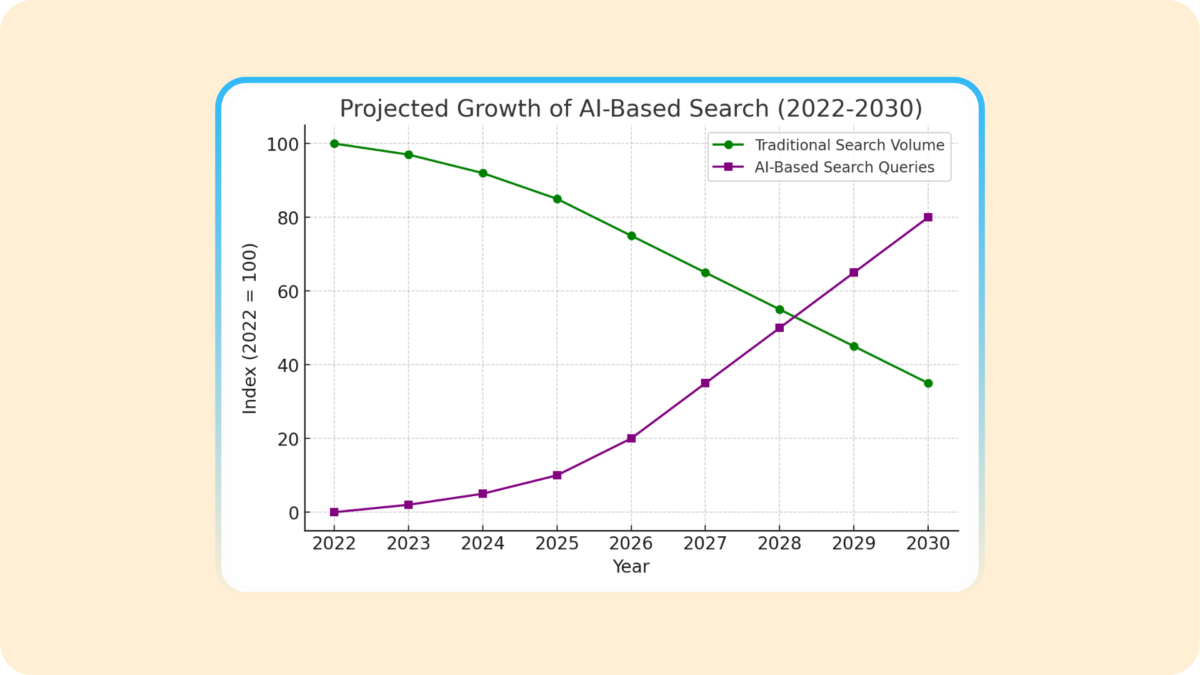My vision around Generative Engine Optimization (GEO)

Search engines are evolving. Where traditional search engines such as Google display a list of results, AI-powered search engines such as ChatGPT and Google’s AI Overviews generate answers instantly. This requires a different approach: Generative Engine Optimization (GEO).
GEO is key to online findability at a time when AI is playing an increasing role. By strategically optimizing content for AI search engines, you increase the likelihood that your brand, products and expertise will be included in AI-generated answers. This is not a trend, but a necessary step in the evolution of search engine optimization as far as I am concerned.
In doing so, I do want to be critical of this hype. In every GEO project, I thoroughly review the current performance from the various AI tools/oversights. Measurability, as with other online marketing channels, is again central to GEO.

What is Generative Engine Optimization (GEO)?
Generative Engine Optimization (GEO) focuses on optimizing Web sites/content so that AI systems recognize, interpret and incorporate them into their generated responses. GEO is all about context, authority and semantic relevance within AI-driven environments.
AI search engines such as ChatGPT and Google’s AI Overviews generate answers based on extensive language models (LLMs) and huge amounts of data. This means that the traditional search results page (SERP) is increasingly giving up some of its space for directly generated answers.
With a well-crafted GEO strategy, you increase the likelihood that your content will be included in these AI answers. This requires a strategic, data-driven approach that responds to the new realities of online search behavior.
Aan de slag met GEO? Neem gerust contact op.

Error: Contact form not found.
Why is GEO important?
Search behavior is changing faster than ever. AI-driven search engines are taking an increasingly prominent place, and companies that capitalize on this are ahead of the competition. Some reasons why GEO plays a crucial role:
- Users expect direct, relevant answers rather than a list of search results.
- GEO helps you become recognized as an expert within AI search engines, making your content more visible.
- The role of traditional search results is (slowly) diminishing. A focus on only traditional SEO can lead to less visibility.
- GEO is still relatively new. Those who invest now have a strategic advantage as an authority within the market.
How does GEO work?
GEO does not replace SEO, but extends it. Many of the things I recommend within an SEO journey also improve findability within AI tools. An effective GEO strategy consists of several layers:
1. Content optimization
AI search engines process information differently than traditional search engines. This requires content that is not only valuable to users, but also understandable to AI models. Consider:
- Content that makes semantic connections between topics.
- Structures that help AI better understand the context.
- Optimization for reliability and relevance.
2. AI-friendly content structure
AI-driven search engines select content based on relevance and reliability. This means a strategic approach is needed:
- Use of structured data.
- Implementation of knowledge graphs and semantic links.
- Create comprehensive, in-depth content that AI can use as a resource.

3. Authority structure
AI search engines are more likely to ingest content from trusted sources. This requires strong digital authority:
- Internal link structures that clarify connections.
- External listings and quality backlinks.
- Consistent, relevant content that substantiates expertise.
4. Monitoring and optimization
AI technology is constantly changing. This makes GEO an ongoing process, where analysis and optimization are essential. Data-driven insights help keep content aligned with how AI search engines work.
As you can see above, virtually everything important to GEO also works for a website’s SEO.
The challenges of GEO
GEO offers opportunities, but also brings challenges. The main obstacles and how to deal with them:
- Unpredictability of AI models: AI search engines are not fully transparent about how they select content. Testing is an important word thus.
- It is still unclear who will win the AI race, optimizing for one platform I would not advise. This makes it more complex.
- Balance between SEO and GEO: Traditional search engines remain important. A hybrid strategy combining both is the most effective approach. Are you getting 10% of your traffic from GEO? Then also allocate 10% of your budget to GEO.
- Measurability of GEO results: Ranking factors within AI search engines are less concrete than with traditional SEO. I make this insightful during GEO processes.
Aan de slag met GEO? Neem gerust contact op.

Error: Contact form not found.
Why invest in GEO?
GEO is a necessary step in the future of online findability. Companies that invest now are positioning themselves as authorities within AI-driven search environments. This means:
- Get a competitive edge – Most companies do not yet have a GEO strategy. Those who bet on it now will build a sustainable advantage.
- Better visibility in AI search engines – Where traditional SEO focuses only on Google, GEO focuses on broader AI-driven search results.
- Stronger authority – By optimizing content for AI interpretation, you increase your chances of being displayed as a trusted source.
- Growth market – GEO is still a growth market, so you will increase in traffic from these search engines year on year anyway.
The future of search engine optimization
The world of search engine optimization is changing rapidly. Companies focusing on GEO now are getting ahead in AI-driven search engines. Want to stay ahead and future-proof your online visibility?

It is difficult at this point to say which LLMs will eventually win out, but it is certainly interesting to take this trend into account already.
Contact us without obligation and find out how a strategic GEO approach can help your business.
